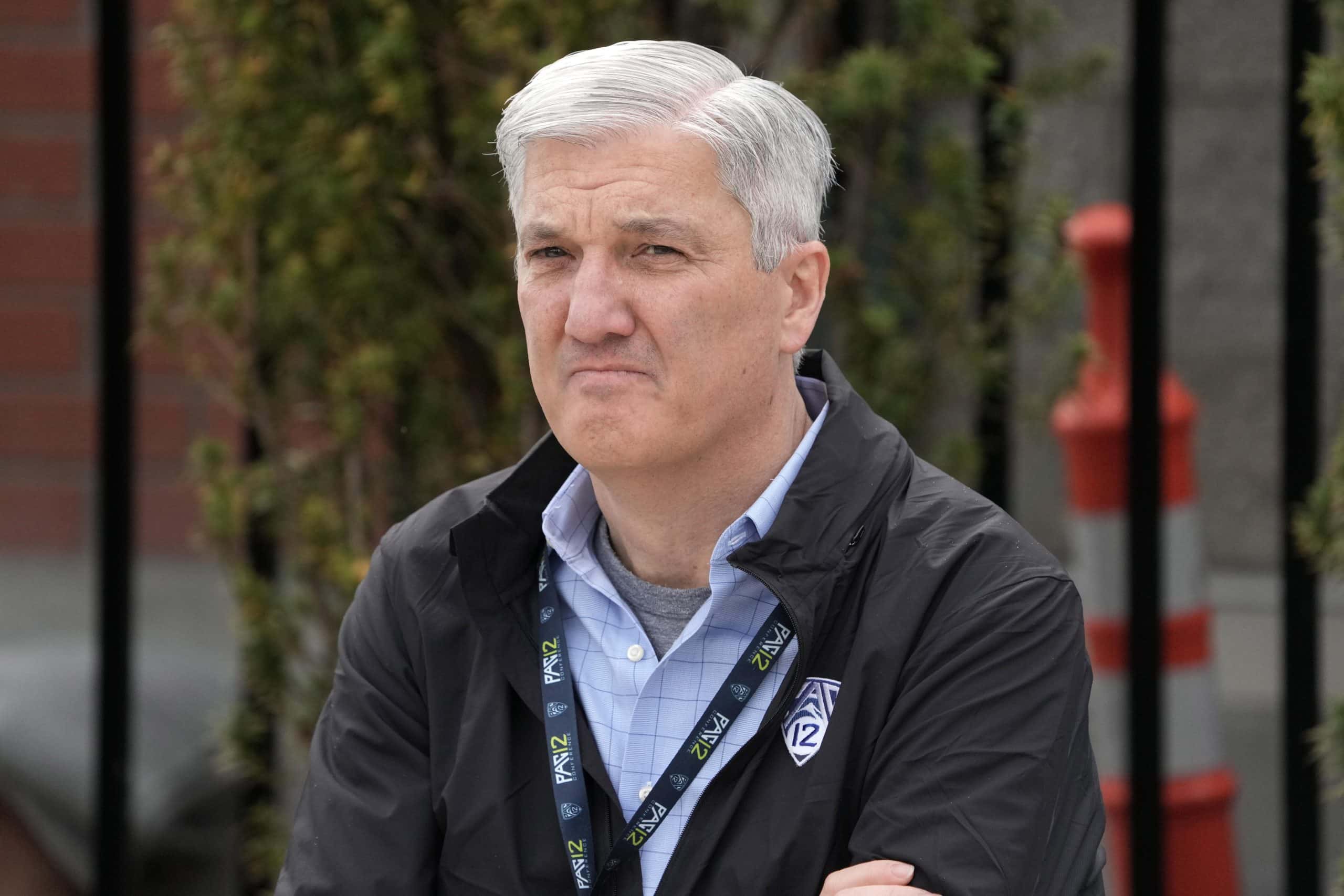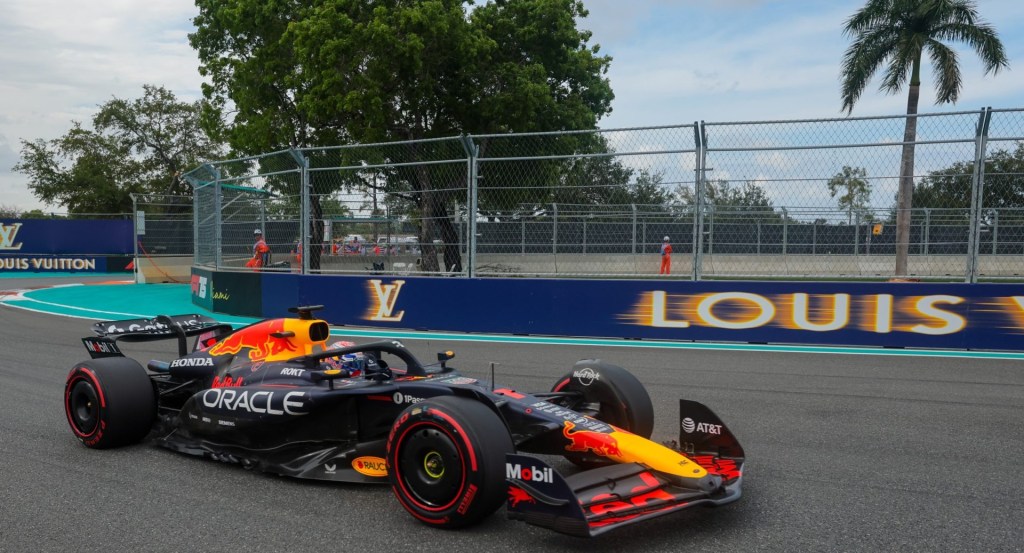In July 2022, shortly after learning it would lose USC and UCLA, the Pac-12 authorized commissioner George Kliavkoff to start negotiating a new media rights deal.
At the time, Kliavkoff said the conference was still in an “enviable” negotiating position — good news, given that a media deal is key to the stability of the conference.
But after a year of negotiating, the conference has delivered nothing to its members but empty promises.
Friday’s football media days were no different. In his first public address in months, Kliavkoff didn’t announce a deal as reports had suggested. He said he wanted to keep the focus on “football” — but didn’t confirm a deal was done.
“The longer we wait for the media deal, the better our options get,” Kliavkoff said. “There’s an underlying shift in the media market that’s happening.”
He also laid out the conference’s expansion plan. First, it will ink a media deal with its existing members (minus USC and UCLA, of course). Then the schools will sign a grant-of-rights agreement — which Kliavkoff claims has already been “negotiated.” Only then, he said, will the Pac-12 potentially extend invitations to a new school.
The process is instructive given what happened with San Diego State, which initially said it would leave the Mountain West, presumably expecting a Pac-12 invitation, but ultimately stayed.
The story of the Pac-12’s precarious position goes back more than a decade. When the current package — a 12-year, $3 billion deal that runs until 2024 — was originally signed, it was touted as the best in college sports.
But speaking to FOS, experts previously pointed out a key flaw: The creation of the Pac-12 Networks, while great for Olympic sports exposure, ended up being a major money loser. That’s because the conference retained ownership of the network instead of selling it to a linear broadcaster like Fox or ESPN, as other conferences have done. As a result, distribution is painfully low.
The recent round of negotiations and realignment have also put the Pac-12 behind.
The loss of USC and UCLA — two of the biggest brands in college sports — has seriously decreased the conference’s value. It went to the media rights market without any replacement schools, and existing members can still flee for the Big 12. (Kliavkoff said on Friday that he wasn’t concerned that the Big 12 would poach new members.)
But the Pac-12, next in line to negotiate a deal after the SEC and Big Ten, was usurped by the Big 12. Commissioner Brett Yormark quickly signed a six-year, $2.28 billion renewal with ESPN and Fox a year earlier than planned. Yormark saw that the economy was entering a downward spiral, and he didn’t want to wait.
The Pac-12 could be waiting for a rumored deal between NBC Sports parent Comcast Corp. and ESPN parent The Walt Disney Co., media consultant Jim Williams told FOS.
Under one scenario, Comcast would swap its 33% stake in streaming giant Hulu for Disney’s 80% ownership of ESPN. A newly energized combination of Comcast/ESPN could then pursue more college media rights — if not take over the Pac-12 Network itself, he speculated.
“That’s a deal I’ve heard is out there that can save them,” he said.
There have been rumors that the Pac-12 would get rich from partnering with a big-time streamer like Apple or Amazon — but those rumors look more and more like a pipe dream. In February, Front Office Sports reported that Amazon was playing “hardball” in negotiations.
Perhaps the conference could look to lower-level streamers like Scripps, Ion, or The CW, which just inked a deal with the ACC. (The CW declined to comment to FOS.)
Looking at a declining economy, less inventory for major networks, and less brand power, the Pac-12 has been “on an island,” an expert source told FOS in February.
After all this time, it still hasn’t found a lifeboat.
Editor’s Note: FOS Senior Writer Michael McCarthy contributed to this report.






![[Subscription Customers Only] Jun 15, 2025; Seattle, Washington, USA; Botafogo owner John Textor inside the stadium before the match during a group stage match of the 2025 FIFA Club World Cup at Lumen Field.](https://frontofficesports.com/wp-content/uploads/2026/02/USATSI_26465842_168416386_lowres-scaled.jpg?quality=100&w=1024)
![[Subscription Customers Only] Jul 13, 2025; East Rutherford, New Jersey, USA; Chelsea FC midfielder Cole Palmer (10) celebrates winning the final of the 2025 FIFA Club World Cup at MetLife Stadium](https://frontofficesports.com/wp-content/uploads/2026/02/USATSI_26636703-scaled-e1770932227605.jpg?quality=100&w=1024)









